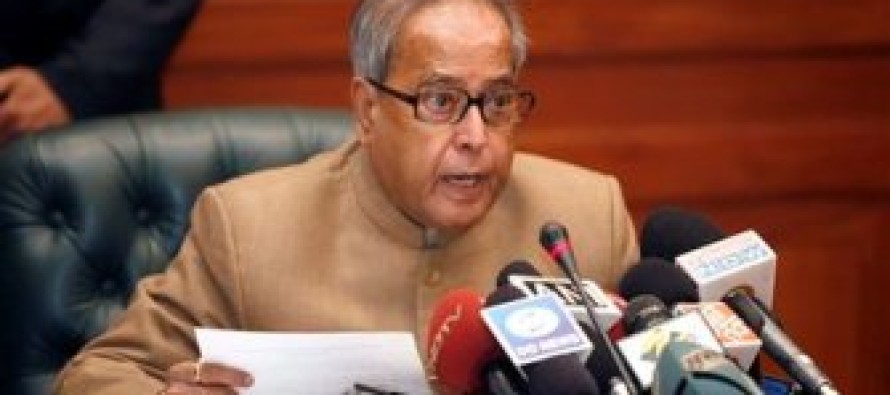Pranab Mukherjee’s visit to Dhaka

The publicly-stated purpose of India’s Minister for Finance, Pranab Mukherjee’s visit to Dhaka on 7th August for about six hours is to witness the signing of the $1 billion loan agreement to Bangladesh for 14 projects related to infrastructure, river dredging and power transmission from India.
The mainstream opposition party BNP, however, strongly criticized the agreement for harsh and unfair conditions of loan, alleging that the projects covered by the loan would benefit India more than Bangladesh and called upon the government to cancel the loan agreement, while the government of Shekh Hasina stoutly defended the loan used for infrastructure of interconnectivity which would make the country a hub of economic activities within the region.
Analysts say the real purpose of Mr. Muhkerjee’s visit is to calm down the anxiety within the Bangladesh government leaders about the painfully slow implementation of matters that are accorded priority in Bangladesh that are covered in the joint communiqué released after the Bangladesh Prime Minister’s visit to New Delhi from 10-13 January.
It may be recalled that the visit of Bangladesh Prime Minister to New Delhi this year ushered in a new era of opportunity in bilateral relations and put in place a comprehensive framework of cooperation in all possible areas.
While India gives top priority to transit facilities through Bangladesh to northeastern India and denial of sanctuary for Indian insurgents in Bangladesh, Bangladesh’s top priority rests on water sharing with, and water management for, common rivers (54 rives flow to Bangladesh from India), implementation of land border agreement of 1974 and duty and hassle free access of Bangladesh’s products to India’s market.
With regard to bilateral trade, both countries agreed “to address removal of tariff and non-tariff barriers” and border hats shall be established on selected areas including on the Meghalayan border.
Bangladesh wanted to open the border hat on Bangladesh-Meghalaya border on 14th April (1st day of Bengali Year) but could not be opened. Recently Bangladesh Commerce Minister expressed his disappointment at the delay in establishing border hat and removing tariff and non-tariff barriers
People expected that by this time at least an-adhoc water sharing accord on the Teesta River would be concluded and no Bangladeshi national would be killed because it was agreed that respective border guards would “exercise restraint” to prevent loss of lives but as of mid July, 101 Bangladeshi nationals are killed by BSF. Furthermore nothing tangible occurred with regard to the implementation of the 1974 Bangldesh-India Border Agreement.
It is noted that although extensive discussions are taking place at the government-to-government level on bilateral issues, public in Bangladesh want results on the ground.
As the saying goes, the proof of the pudding lies in eating. Many Bangladesh people believe that India with its vast resources and more than a trillion dollar -economy would be forthcoming in following the “Gujral doctrine” which means strict reciprocity is not intended for smaller neighbours and whatever accommodation India is able to give, it provides without asking reciprocity
Regrettably many in Bangladesh take India’s promises with caution because in the past, either the promises were not delivered or were put into cold storage due to the federal-state bureaucratic maze in India,
In the book “ The Jamdani Revolution” (2009), the former India’s Foreign Secretary and High Commissioner to Bangladesh, Krishnan Srinivasan writes: “ The political will and attention span have been lacking in New Delhi…In other words the Indian government has tended to allow the hardliners and Hindu chauvinists to set the agenda for its policy towards Bangladesh, when a more rational approach would have been to come to some understandings on Dhaka’s agenda” (p.424).
We hope the visit of Indian Finance Minister will bring benefits to Bangladesh people in facilitating the early implementation of core bilateral issues, cutting off the bureaucratic hurdles in India.
Finally, the state of overall Indo-Bangladesh relations has to be viewed in the context of public opinion in Bangladesh. Public opinion will be easily won over when benefits become evident from India’s action on the ground. The sooner it is, the better is for promotion of bilateral relations.
By Barrister Harun ur Rashid
Former Bangladesh Ambassador to the UN, Geneva.


